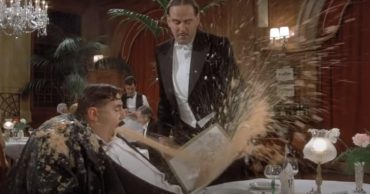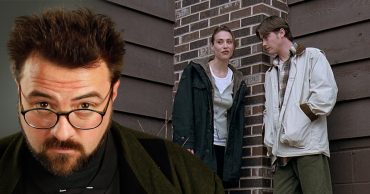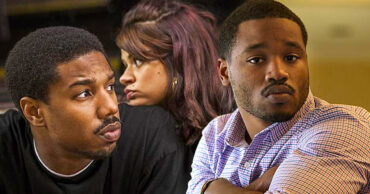
Who knows if I’ll make this some sort of new feature where I pit two people head to head based on…something, but I’m going to try it out. I was recently thinking about people like Michael Bay and Wes Anderson (yes, I just put them together) and how they make essentially the same movie over and over and get away with it because well, it works. But I stopped mid —rant and decided to think about the opposite. Who are the directors who are truly diverse in their filmmaking? Who try a bunch of different genres and styles and still come up roses almost every time?
Well, maybe you can think of better ones, but I thought of two. Ang Lee and Danny Boyle. Both have produced some true genre classics, and both have been rewarded with Oscars at some point. But which one is more diverse? I’ll leave that for you to decide.
The battle begins below!
Ang Lee
The Asian sensation.
Sense and Sensibility (1995)

We’ll start here with his American film debut. The movie was a brilliant period piece that won over critics and audiences alike. His translation of the Jane Austen novel was almost flawless, and you thought it would be an indicator of his future work.
The Ice Storm (1997)

We’re not going too crazy yet. Though The Ice Storm has little in common with Sense and Sensibility, it did focus heavily on drama and personal relationships, though it was a much darker story without a happy ending. Audiences didn’t much take to it, but the film became a cult study in suburban gothic moviemaking and preceded such classics as American Beauty.
Crouching Tiger, Hidden Dragon (2000)

Seeing as the man is from Asia, a martial arts epic doesn’t seem that out of the question, but compared to his last few films it was a radical departure. The fly-by-wire action was like nothing audiences had seen before, and even though they didn’t speak the language, the film was a hit in America and worldwide.
Hulk (2003)

Here’s where things start to go off the deep end. I bet you never thought we’d get here from Sense and Sensibility. A superhero movie? Full of CGI? And it’s terrible? I’ve no idea what on earth led Ang Lee to this movie, and frankly it’s one of the reasons I put him in this diversity head to head. It was a valiant effort, but ultimately a failure, and it became a what NOT to do lesson of the superhero genre.
Brokeback Mountain (2005)

But it was just a warm up for Lee’s greatest picture to date. Brokeback Mountain won the love of critics and the scorn of red states, and despite a completely WTF concept (Gay cowboys in Wyoming? OK) almost won an Oscar. It didn’t (Crash? Please) but Lee got his first statue as best director, the only Asian man to ever do so.
Taking Woodstock (2009)

Now Lee is continuing to bounce of the directional walls with his latest film, Taking Woodstock. It stars untested actor Demetri Martin of all people and chronicles how Woodstock came to be the biggest concert in the history of time.
*And yes, Life of Pi was an incredibly well told story.
Common thread — If there is one, I’d say it has to the love story. Each of these films features pretty prominent romantic subplots (or in Sense and Sensibility’s case, entire plots) but that’s a pretty loose thread to say that it ties all of them together. His catalog is about as diverse you can get. And is Life of Pi the love between a man and a tiger? Just kidding.
And now the challenger:
Danny Boyle
The British brawler.
Trainspotting (1996)

When I first saw Trainspotting, I was utterly convinced it was a Guy Ritchie movie, with all the fast cuts and tweaked out British guys. It could have set the tone for Boyle as a Ritchie clone, but as time proved, he ultimately became much more than Ritchie ever could be.
The Beach (2000)

From drug addled twenty something to a murderous tribe of island dwellers, The Beach is a mix of emotions for me. Despite good directing and a solid performance from DiCaprio, the movie simply isn’t that good, though it is an important piece of the diversity puzzle.
28 Days Later (2002)

While The Beach was chilling at times, here we’re diving into pure horror. But not content with just another zombie movie, 28 Days Later redefined the entire genre, and its “fast zombies” were among the most terrifying movie monsters of all time.
Millions (2004)

Deciding he needed a break from the insane, Boyle then made millions, which you would think would be brought to you “from the guys who made Love Actually and About a Boy.” It’s the touching story of a kid who finds a bag of money, then gives it all away. How nice!
Sunshine (2007)

But another abrupt genre shift sent Boyle in yet another direction. Sunshine is a new era sci-fi classic, and without a doubt, one of the most beautiful movies ever shot. For his first swing at the genre, Boyle hit a home run just like he did when he dabbled in horror. Is there anything the man can’t do?
Slumdog Millionaire (2008)

Well, he can win Oscars. Slumdog practically swept the academy awards, as well as being completely different than anything Boyle had done before. Bollywood? Sure, not a problem for Mr. Diversity. Though he is talking about making a sequel, which would throw off his track record. He should be making like an anime now to keep things fresh.
*127 Hours and Steve Jobs were solid. Jobs got mixed reviews whereas everyone agreed 127 hours was awesome. Tough to watch, but awesome.
Common thread — This is damn near impossible to find, but it’s running. Yes, running. Running from maniacs and cops in Trainspotting. Running from murderous killers in The Beach. Running from brain-eating zombies in 28 Days Later. Running from burglars in Millions. Running across the core of a spaceship in Sunshine. Running through the train station in Slumdog. There.
The winner
I have to go with Boyle here. Look at those films. He’s done crime drama, thriller, horror, feel-good, sci-fi and Oscar winning, and he’s done them all well. Though Lee is certainly diverse as well, his films feel a lot more the same, while Boyle’s often seem like they’re from completely different world.
Also there’s no comparing any movie to Life of Pi, 127 Hours, or Steve Jobs – they pretty much stand on their own.
 Follow Us
Follow Us





